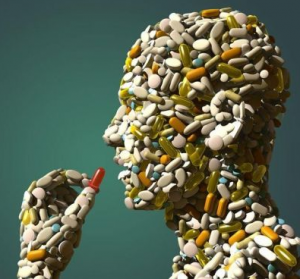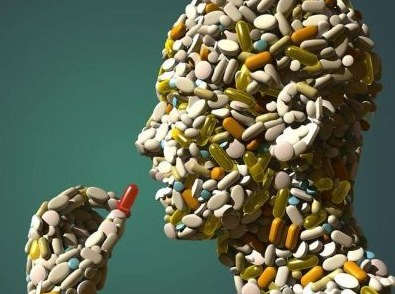The Wide World of Supplements
 In Morgantown, W. Va., all-star gym Champion Training Academy sells USANA nutritional supplements and weight loss products as part of its adult weight loss/group fitness program. Over in Katy, Texas, Xcel Athletics All-Stars hosted a Valentine’s Day shopping event earlier this year at which one of the vendors was Advocare (a company that markets energy, weight loss, nutrition and sports performance products). Some gyms are also selling Advocare on-site, such as Green Bay-based Tri County Gymnastics & Cheer, and many cheer professionals moonlight as Advocare reps in addition to their work at the gym, including Tori and Jason Cuevas (Legacy All-Star Cheer & Dance), Sherry Gomez (Ultimate Cheer & Dance) and James Whitaker (Cheer Time Revolution).
In Morgantown, W. Va., all-star gym Champion Training Academy sells USANA nutritional supplements and weight loss products as part of its adult weight loss/group fitness program. Over in Katy, Texas, Xcel Athletics All-Stars hosted a Valentine’s Day shopping event earlier this year at which one of the vendors was Advocare (a company that markets energy, weight loss, nutrition and sports performance products). Some gyms are also selling Advocare on-site, such as Green Bay-based Tri County Gymnastics & Cheer, and many cheer professionals moonlight as Advocare reps in addition to their work at the gym, including Tori and Jason Cuevas (Legacy All-Star Cheer & Dance), Sherry Gomez (Ultimate Cheer & Dance) and James Whitaker (Cheer Time Revolution).
According to Whitaker, it’s not surprising that many in the cheer industry are embracing supplements. “Both coaches and athletes put a lot of stress on their bodies—heavy lifting, multiple repetitions, fatigue, muscle breakdown, dehydration,” says Whitaker. “And not only that, but our time is very limited. When you supplement, it allows you to overcome those obstacles.”
Whitaker isn’t alone in his penchant for supplements—in 2012, the nutritional supplement category hit $32 billion in revenue, and by 2021 it will be almost double that at $60 billion (according to the Nutrition Business Journal). While these numbers signal blockbuster business for the supplement industry, the surge also means consumers will need to work harder in order to sift through the barrage of advertising, studies and claims that are sure to follow.
So how can cheer professionals begin the tedious process of navigating the supplements market? Understanding supplements and what they do will assist in deciphering which ones make sensible, safe choices for you—and your athletes.
What are supplements? The definition of a supplement “is simple,” explains Dr. Jenny Abercrombie, an El Segundo, CA-based naturopathic doctor. She describes supplements as an “adjunct to nutrition,” meaning that supplements are not meant to replace the foods we eat, but rather “to fill in the gaps.”
Whitaker believes supplements also help him set a good health example. “I use Brad Habermel and Cheer Athletics as an analogy,” he shares. “He is in great shape, [so] his teams are in great shape. He coaches with high energy, [so] his teams perform with tons of energy. They are a direct reflection of him. His healthy lifestyle helps him not only coach at a high level but gives him credibility when he demands that same healthy lifestyle from his athletes.”
How powerful are they? Supplements support and even enhance body function, including offering remedies when certain issues arise (such as fatigue caused by stress, lack of sleep or over-training). “They help prevent burnout and improve recovery and performance,” says Dr. Abercrombie. The magic happens at the cellular level by improving the muscle’s utilization of sugar, “which is where we get energy from.”
But Dr. Abercrombie cautions that too often people—especially active adults and athletes—rely solely on supplements for nutrition. “It’s much easier to take a supplement,” she says, “and much harder to identify and eliminate poor food choices that cause poor performance, anxiety, mood swings and depression.”
Chris White, the Georgia-based owner of Spirit Supplements Nutrition, LLC, says he witnesses the effects of poor food choices on a daily basis. “All too often, I see kids show up for competition with empty fast food wrappers and an energy drink, and they wonder why they don’t feel good or perform well,” he says. Though White commiserates with families and the busy lives they lead, he believes there are alternatives to mainstream unhealthful grab-n-go foods—supplements that can be both fast and nutritious. “A protein shake is quick and easy, too,” he adds.
Which ones are worth it? Stephanie Beveridge, FDN, agrees. “I always recommend a whole, nutrient-dense lifestyle of food for everyone (including athletes), but supplements can assist in wellness,” says Beveridge, who is the executive director of programs for Copperas Cove, TX-based GymKix. Two supplements Beveridge often recommends for overall health: vitamins A and D. According to Beveridge, Vitamin A is essential because it supports healing, while Vitamin D reduces internal inflammation—both effects that can serve to cut an athlete’s downtime between a hard practice and a competition.
What to watch out for? Beveridge is quick to point out that quality varies between brands; she also makes the broad claim that almost all mainstream and heavily advertised supplements likely contain toxins. “Most have artificial food colorings and sweeteners,” explains Beveridge. “[These] have been linked to negatively impact the brain and the central nervous system.” Beveridge recommends reading labels and avoiding brands that list aspartame, sucralose or saccharin as ingredients. Instead, she advocates buying supplements that use natural sweeteners like stevia, honey and maple syrup.
Are there alternatives to relying on supplements that will get the same results? The answer is “yes,” says White. Before turning to taking supplements, White recommends getting back to nutrition basics with what he calls “clean eating.” He believes athletes and active adults can meet their dietary needs by consuming adequate amounts of hormone-free meat proteins, fruits and vegetables, as well as fats from foods like avocados.
“If kids still aren’t performing well, I give parents a checklist,” says White. The checklist includes questions regarding a child’s overall well-being, such as hydration, stress level, sleep patterns, social challenges and medications. The answers help White educate parents and develop a strategy to remedy issues with performance through a combination of good nutrition and supplementation.
–Cathleen Calkins
Visit our blog for a rundown of suggested supplements for you and your athletes!









Cheerpedia
May 11, 2014 @ 3:37 am
Thank you 😉